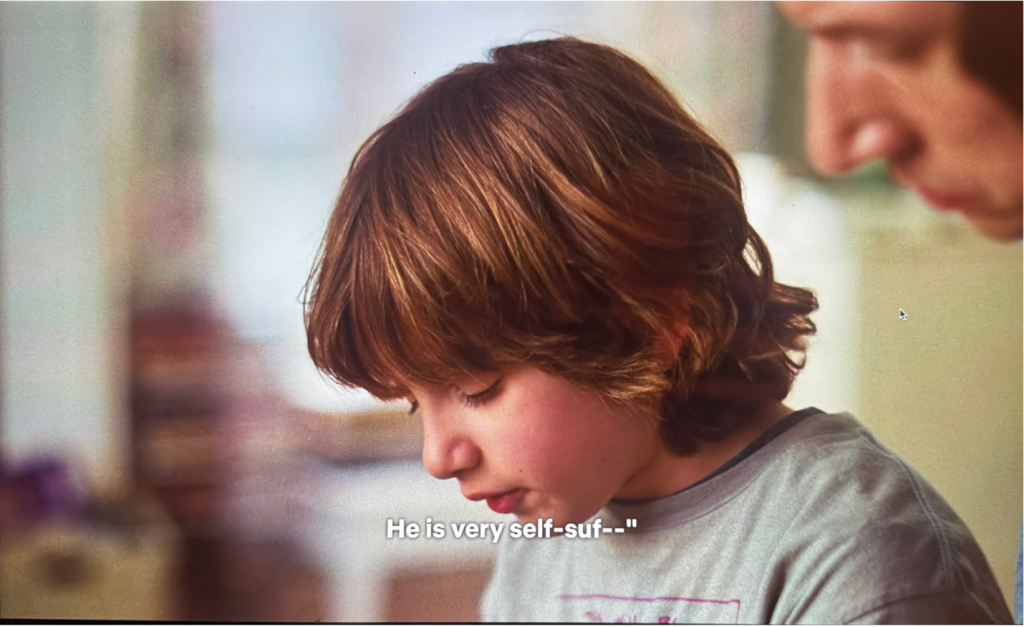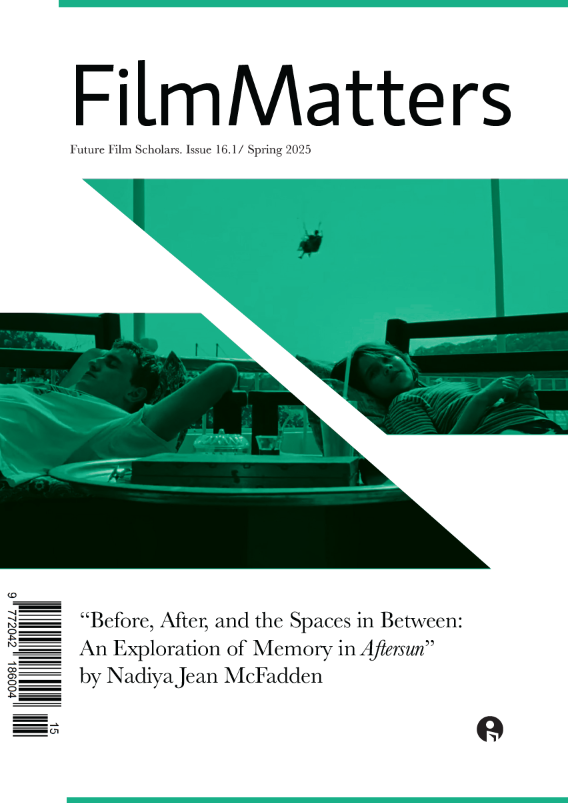
Marriage Story (Noah Baumbach, 2019) follows the emotional and legal challenges of a divorce between Charlie, a successful New York theatre director, and Nicole, an actress seeking independence in Los Angeles. As they navigate divorce and a custody battle over their son, Henry, the film explores the personal sacrifices and miscommunications that tear them apart and analyzes the inescapable bond that will forever linger between them. Baumbach crafted a narrative that captures the raw, unfiltered emotions of separation, lending the film a remarkable sense of authenticity and emotional depth that evokes profound sorrow in its viewers. Reflecting on its emotional weight, film critic Wenlei Ma observed, “ Marriage Story is so raw and emotionally burning that the experience is best savored alone” (Ma, 2019). It is clear why Ma would express this sentiment, as the film offers a gut-wrenching two-hour immersion into the unraveling of a once-deep love. Similarly commenting on the painful authenticity of the film, many viewers have described Marriage Story as “sadly too realistic,” “incredibly depressing,” and “devastating,” one viewer commenting that “no cheek will be left dry” (“Marriage Story”).
However, I argue that despite its heartbreak, Marriage Story demonstrates that, though altered, love can persist unexpectedly. Marriage Story ultimately challenges the notion that divorce signifies the death of love, instead revealing how genuine care, shared history, and mutual responsibility can endure even after a marriage has ended.
One scene that displays the enduring love of Charlie and Nicole despite the decomposition of their relationship is a scene near the end of the film where Charlie reads to Henry a letter that Nicole had written explaining her reasons for loving Charlie (2:06:48). This scene powerfully reinforces my central argument that, rather than simply being a bleak divorce drama, the film is an unconventional love story—one that highlights how enduring love can persist even as two people separate. This scene emphasizes that their relationship is not defined by its failure but by the love that once existed and continues to shape their lives. As Charlie reads Nicole’s letter aloud, both Charlie and Nicole begin to cry, signaling that they both acknowledge the depth of the love they once shared and the inescapable truth that, in some form, it will always remain a part of them. The inclusion of Henry in this moment adds further significance, as he serves as a tangible reminder of their past relationship while also symbolizing the shift in their connection—from romantic partners to co-parents. This moment encapsulates the heart of Marriage Story: that love, though redefined by the dissolution of their marriage, remains a powerful force between Charlie and Nicole, a love that endures not in the absence of pain but in the very presence of it and continues to bind them together in ways that surpass romance.
The filmic elements present in this scene further strengthen the idea that Charlie and Nicole share a lasting love that transcends romance. The scene opens with a two-shot where Henry is the center of the mise-en-scène, while Charlie and the remainder of the background remain out of focus (2:07:00). This focus on Henry, especially considering the contents of the letter Henry is reading, highlights the connection that Nicole and Charlie will continue to share through the act of co-parenting Henry. The scene then shifts to display a two-shot of Charlie and Henry with Charlie now in focus, allowing the viewer an intimate view of Charlie’s reaction, emphasizing his vulnerability as he reads words that affirm Nicole’s enduring admiration and love for him (2:07:15). The scene continues in this fashion, including close-ups of Charlie’s face and shots focused on Henry, eventually Nicole appears on scene as well as symbolizing the lasting connection between his parents through the depiction of this new family dynamic.
Additionally, by choosing to have Charlie and Henry read the letter aloud, Baumbach allows the audience to experience this love anew, reframed not as something tragic but as something long-lasting. It is a moment of quiet reconciliation, proving that even as a marriage dissolves, the bonds forged throughout remain, shaping their shared future rather than being confined to the past.
In Marriage Story, Baumbach challenges the conventional notion of love by portraying a relationship that does not conform to typical narratives of loss or failure. The film does not merely depict the painful disintegration of a marriage; it demonstrates that love—though transformed—can persist and adapt, continuing to shape lives in subtle, enduring ways. By showcasing the emotional complexity of Charlie and Nicole’s connection, Marriage Story urges us to see love not just in terms of romantic attachment but as a more multifaceted force—one that can transcend separation and endure life’s most challenging moments.
References
Baumbach, Noah, director. Marriage Story. Heyday Films in collaboration with Netflix, 2019.
Ma, Wenlei. “Marriage Story Is an Emotional Storytelling Masterpiece.” Review of Marriage Story, directed by Noah Baumbach. Rotten Tomatoes, 19 Dec. 2019, https://www.rottentomatoes.com/m/marriage_story_2019. Accessed 1 Apr. 2025.
“Marriage Story.” IMDb, www.imdb.com/title/tt7653254/reviews/?ref_=tt_ov_ql_2. Accessed 22 Apr. 2025.
Author Biography
Brealin Maya is from Newland, North Carolina, and is currently attending Davidson College in Charlotte, North Carolina.







































